- Home
- Quizzes
- My Quiz Activity
- Newsletters
- Sports Betting
- MY FAVORITES
- Add Sports/Teams
- SPORTS
-
NFL
- NFL Home
- Arizona Cardinals
- Atlanta Falcons
- Baltimore Ravens
- Buffalo Bills
- Carolina Panthers
- Chicago Bears
- Cincinnati Bengals
- Cleveland Browns
- Dallas Cowboys
- Denver Broncos
- Detroit Lions
- Green Bay Packers
- Houston Texans
- Indianapolis Colts
- Jacksonville Jaguars
- Kansas City Chiefs
- Las Vegas Raiders
- Los Angeles Chargers
- Los Angeles Rams
- Miami Dolphins
- Minnesota Vikings
- New England Patriots
- New Orleans Saints
- New York Jets
- New York Giants
- Philadelphia Eagles
- Pittsburgh Steelers
- San Francisco 49ers
- Seattle Seahawks
- Tampa Bay Buccaneers
- Tennessee Titans
- Washington Commanders
-
MLB
- MLB Home
- Arizona Diamondbacks
- Atlanta Braves
- Baltimore Orioles
- Boston Red Sox
- Chicago White Sox
- Chicago Cubs
- Cincinnati Reds
- Cleveland Guardians
- Colorado Rockies
- Detroit Tigers
- Houston Astros
- Kansas City Royals
- Los Angeles Angels
- Los Angeles Dodgers
- Miami Marlins
- Milwaukee Brewers
- Minnesota Twins
- New York Yankees
- New York Mets
- Oakland Athletics
- Philadelphia Phillies
- Pittsburgh Pirates
- San Diego Padres
- San Francisco Giants
- Seattle Mariners
- St. Louis Cardinals
- Tampa Bay Rays
- Texas Rangers
- Toronto Blue Jays
- Washington Nationals
-
NBA
- NBA Home
- Atlanta Hawks
- Boston Celtics
- Brooklyn Nets
- Charlotte Hornets
- Chicago Bulls
- Cleveland Cavaliers
- Dallas Mavericks
- Denver Nuggets
- Detroit Pistons
- Golden State Warriors
- Houston Rockets
- Indiana Pacers
- Los Angeles Clippers
- Los Angeles Lakers
- Memphis Grizzlies
- Miami Heat
- Milwaukee Bucks
- Minnesota Timberwolves
- New Orleans Pelicans
- New York Knicks
- Oklahoma City Thunder
- Orlando Magic
- Philadelphia 76ers
- Phoenix Suns
- Portland Trail Blazers
- Sacramento Kings
- San Antonio Spurs
- Toronto Raptors
- Utah Jazz
- Washington Wizards
-
NHL
- NHL Home
- Anaheim Ducks
- Arizona Coyotes
- Boston Bruins
- Buffalo Sabres
- Calgary Flames
- Carolina Hurricanes
- Chicago Blackhawks
- Colorado Avalanche
- Columbus Blue Jackets
- Dallas Stars
- Detroit Red Wings
- Edmonton Oilers
- Florida Panthers
- Los Angeles Kings
- Minnesota Wild
- Montreal Canadiens
- Nashville Predators
- New Jersey Devils
- New York Islanders
- New York Rangers
- Ottawa Senators
- Philadelphia Flyers
- Pittsburgh Penguins
- San Jose Sharks
- Seattle Kraken
- St. Louis Blues
- Tampa Bay Lightning
- Toronto Maple Leafs
- Vancouver Canucks
- Vegas Golden Knights
- Washington Capitals
- Winnipeg Jets
- NCAAF
- NCAAM
- Boxing
- Entertainment
- Lifestyle
- Golf
- MMA
- Soccer
- Tennis
- Wrestling
- More Sports
- RESOURCES
- My Account
- YB on Facebook
- YB on Twitter
- YB on Flipboard
- Contact Us
- Privacy Policy
- Terms of Service
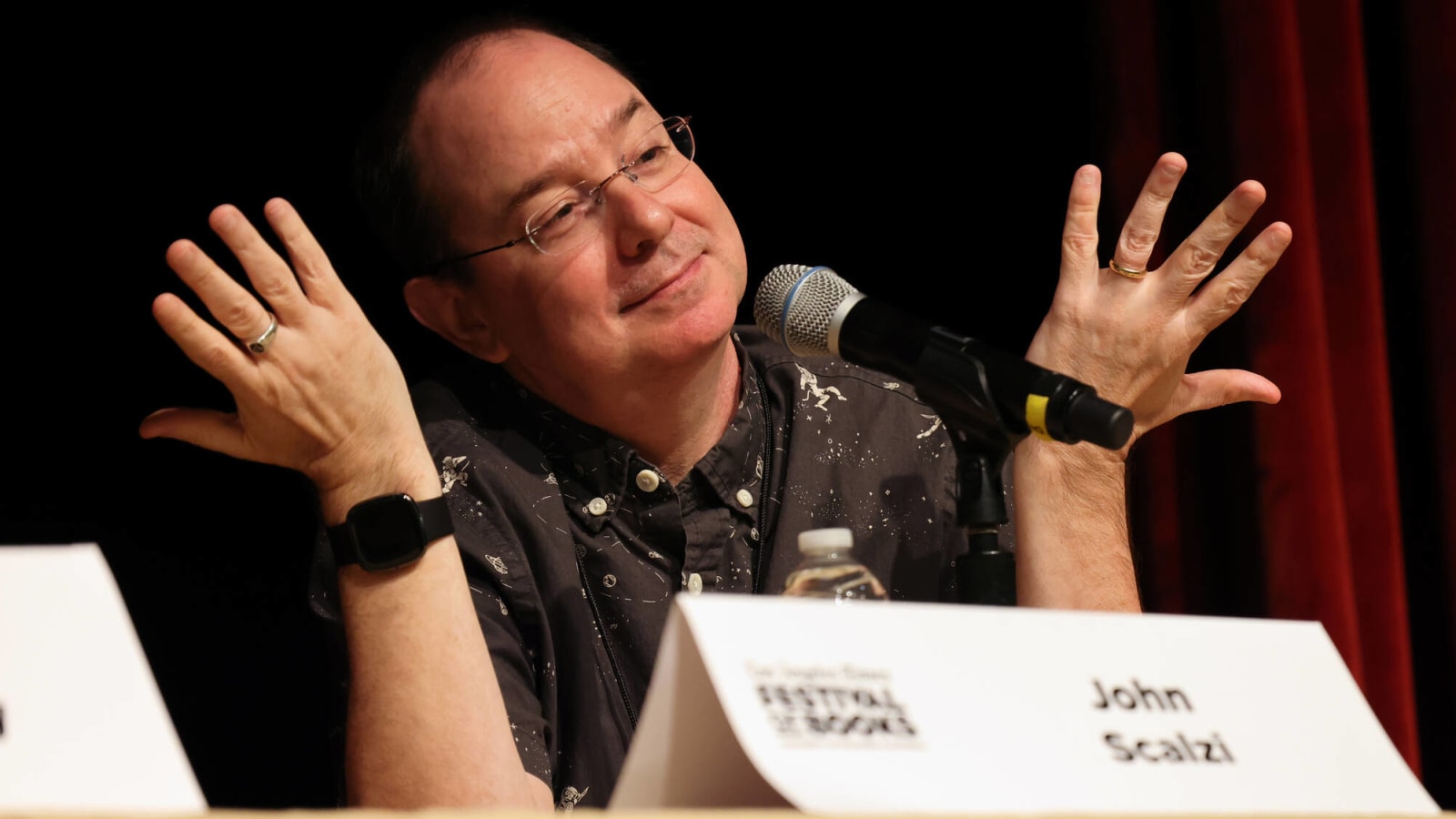
20 sci-fi series that need a TV adaptation
Science fiction has long been one of the most popular genres of fiction, thanks in no small part to its ability to imagine what the future might look like for humanity. What is particularly remarkable about science fiction as a genre is its sheer diversity, encompassing everything from space opera to hard science fiction. It has also experienced a resurgence in popularity thanks to the many screen adaptations that have emerged over the past decade. While many great sci-fi works have already been adapted to screen or stage, several are still waiting for their adaptation.
'The Hitchhiker’s Guide to the Galaxy' by Douglas Adams
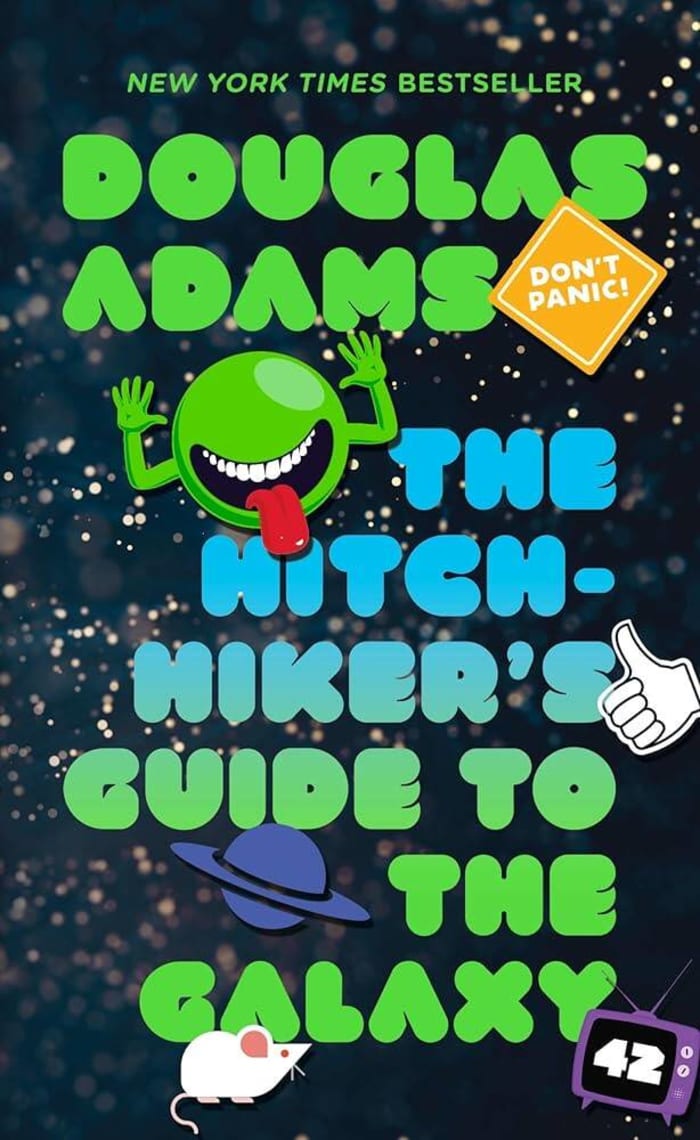
The late Douglas Adams was quite adept at drawing out the inherent comedy of the sci-fi genre, most notably in his The Hitchhiker’s Guide to the Galaxy series. The main character of his series is the unfortunate Arthur Dent, who ends up being one of the last survivors of humanity after Earth gets destroyed. Despite its obvious humor, the series is thought-provoking, in the tradition of great sci-fi. Though it has seen its fair share of adaptations, the last such was released in 2005, and so it seems that it is high time that it gets a reboot, preferably in the form of a TV series (which would give adapters a chance to really do the story justice).
'The Forever War' by Joe Haldeman
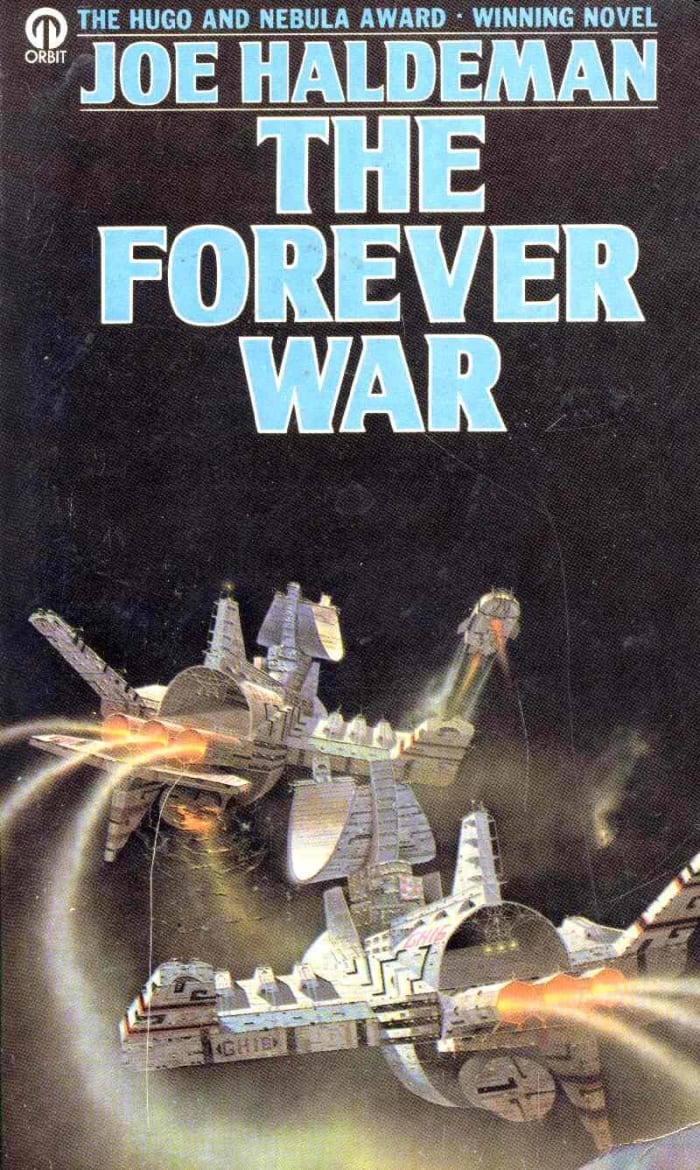
Military sci-fi has long been a productive and popular sub-genre, and one of the most notable works in that strain is The Forever War and its sequels, Forever Free and Forever Peace (the latter is a thematic rather than direct sequel). At the heart of the story is an ongoing conflict between humans and a race of aliens called the Taurans, and it focuses in particular on the experiences of William Mandella, a soldier. It’s the kind of gritty space opera grounded in the realities of warfare and the soldier’s life, and either the first or second volume would lend itself very well to a film adaptation.
'Lilith’s Brood' by Octavia Butler
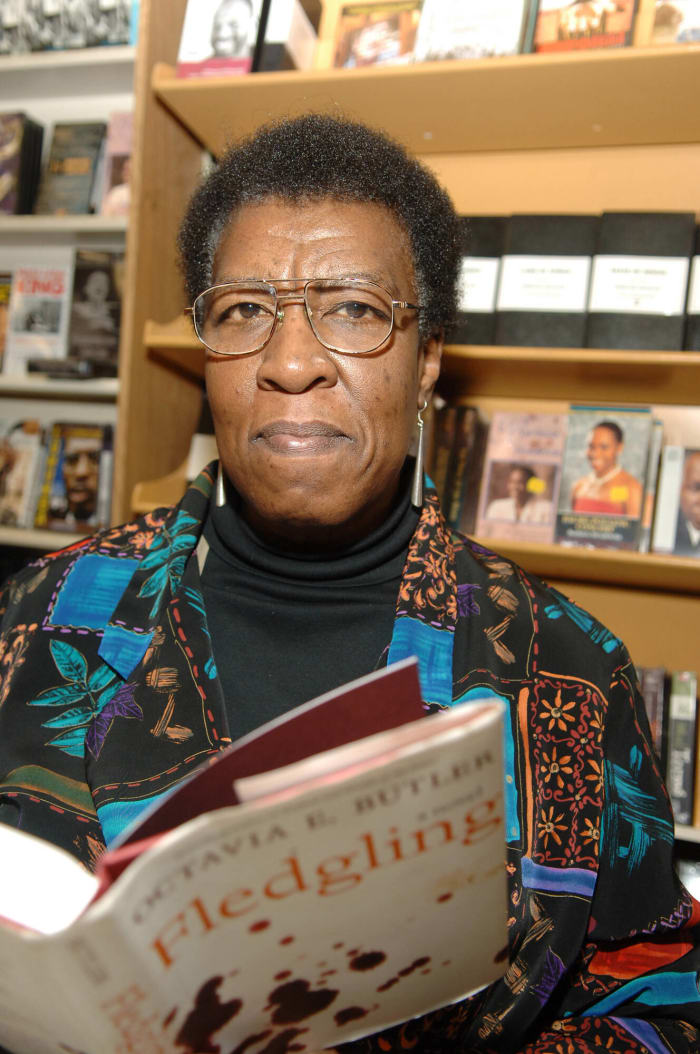
Before she died in 2006, Octavia Butler had proved herself to be a true visionary in the world of speculative fiction. Much of her work, including the Lilith’s Brood series, engages with some of the thorniest questions facing human society, particularly those concerning race, gender, and sexuality. The series focuses on the strained yet strangely productive relationship between humanity and an alien species called the Oankali. This type of sci-fi encourages the viewer to think, and thus, it would make an ideal choice for an adaptation, particularly in the hands of a director like Ava DuVernay.
'Otherland' by Tad Williams
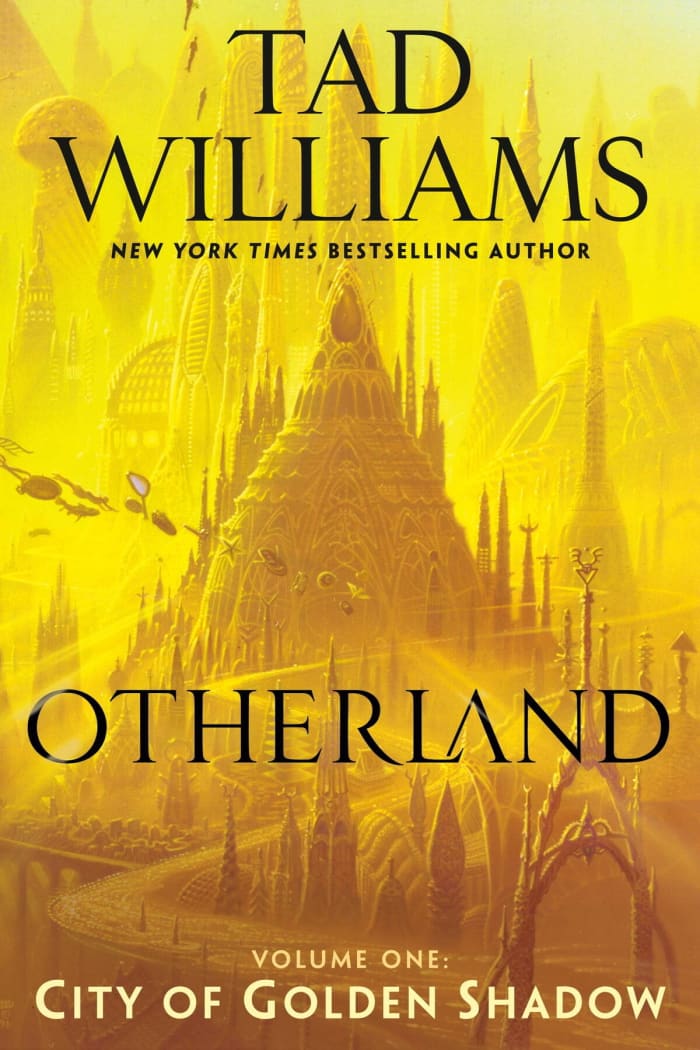
Throughout his career, Tad Williams has shown to be one of the most versatile speculative fiction writers, working in a number of genres. In Otherland, he introduces readers to a future in which virtual reality has developed to an extraordinary degree, often with unforeseen and deadly consequences. Like many other Williams works, the books are heavy, dense, and filled with intersecting, complex plotting and vibrant characters. These are just the aspects that would make it a rich source for television, the expanded temporal possibilities of which would allow creators to do justice to the complexity of the author’s work.
'Old Man’s War' by John Scalzi
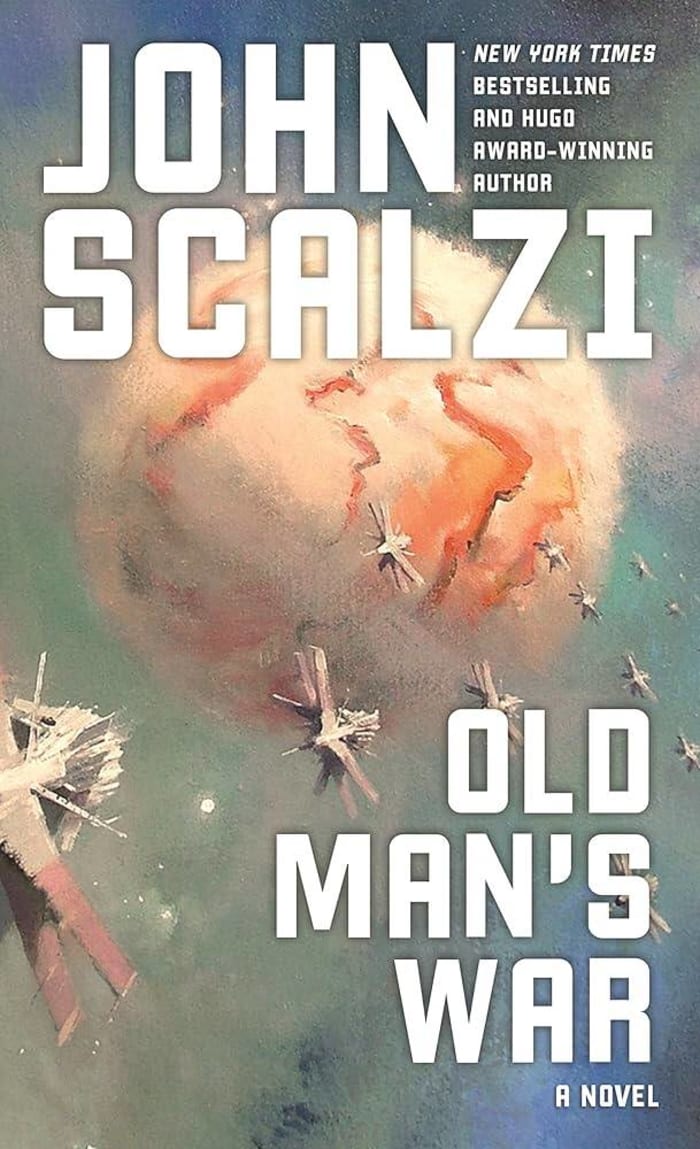
John Scalzi’s Old Man’s War focuses on the experiences of a soldier named John Perry and his experiences after getting a new body. It’s a series that creatively imagines what the future might look like in terms of human genetic engineering and armed conflict among various races. Scalzi has perfected the art of creating compulsively readable narratives populated with fully realized characters, which makes his work ideal for translating to a visual medium. Though his works have been optioned several times, including by Netflix, fans of his work are still waiting for the time when Perry will at last get his time on the screen.
'Dragonriders of Pern' by Anne McCaffrey

Anne McCaffrey was one of the giants of science fiction and fantasy before her passing in 2011. Though she wrote many different series, her magnum opus was the long-running Dragonriders of Pern, which took place on the planet of Pern and the generations of Dragonriders who work to keep the planet safe from the toxic spore known as Thread. Dragons are, of course, a perennial favorite for the screen, and the richness of McCaffrey’s world — and the wide number of novels to draw from — makes it a good candidate for anyone looking for another series attempting to cash in on the success of Game of Thrones.
'The Majipoor Chronicles' by Robert Silverberg
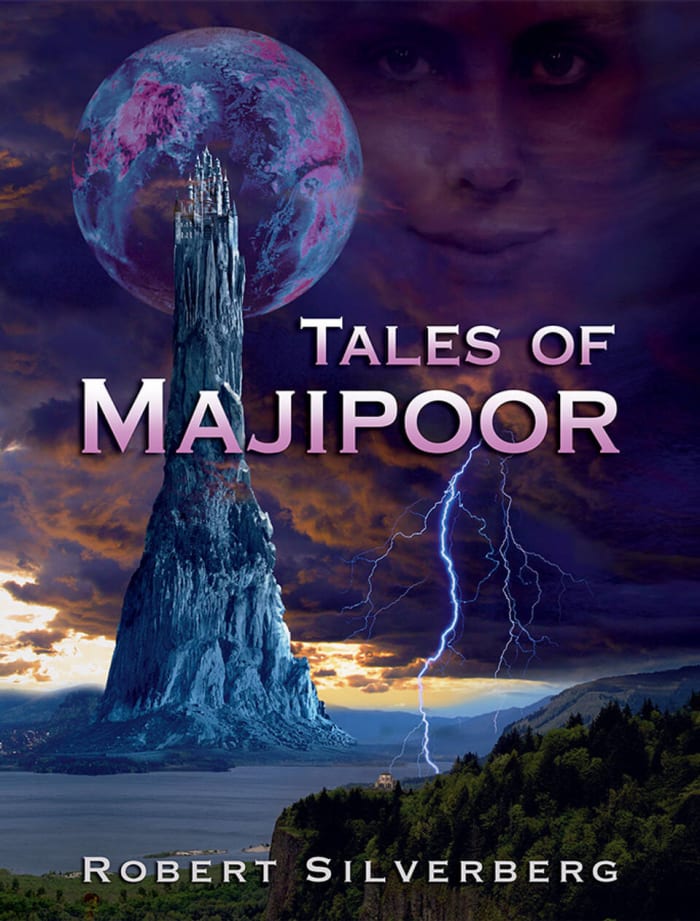
Robert Silverberg is one of the giants of speculative fiction, and though he has written numerous short and long fiction works, in many ways, his sci-fi series Majipoor is his most famous work. Set on the planet Majipoor, many of the stories and novels use this setting to explore issues of politics and racial tension, and it’s the type of fiction that invites the audience to lose themselves completely in this secondary creation. As a result, it’s exactly the type of science fiction series that would lend itself to a television adaptation spread over several seasons.
'The Mars Trilogy' by Kim Stanley Robinson
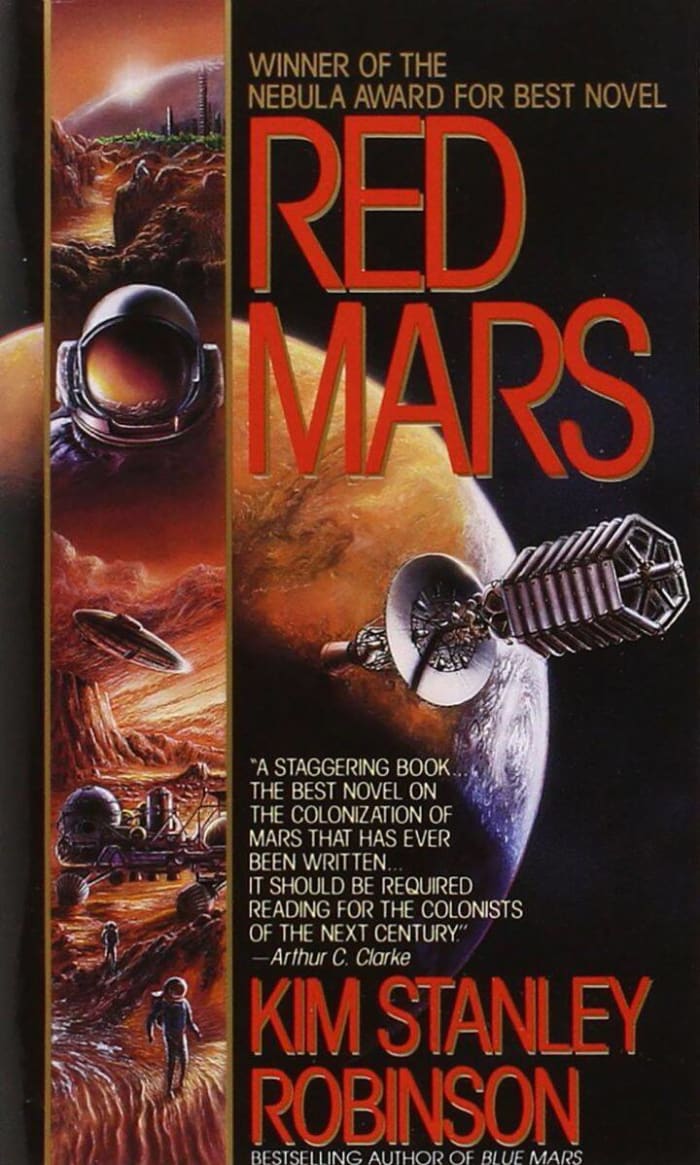
Kim Stanley Robinson has long been known for being a science fiction author who pays scrupulous attention to the scientific principles behind his fiction. In the Mars trilogy, he immerses readers in the world of Mars as it is slowly transformed into a hospitable planet by settlers from Earth. Unlike so many other sci-fi series, it is actually quite optimistic about humanity’s future among the stars, which would make for a refreshing change from the pessimistic and dystopian sensibility so common in much science fiction. Moreover, a screen adaptation would surely appeal to those who want some intellectual heft behind their sci-fi.
'The Murderbot Diaries' by Martha Wells
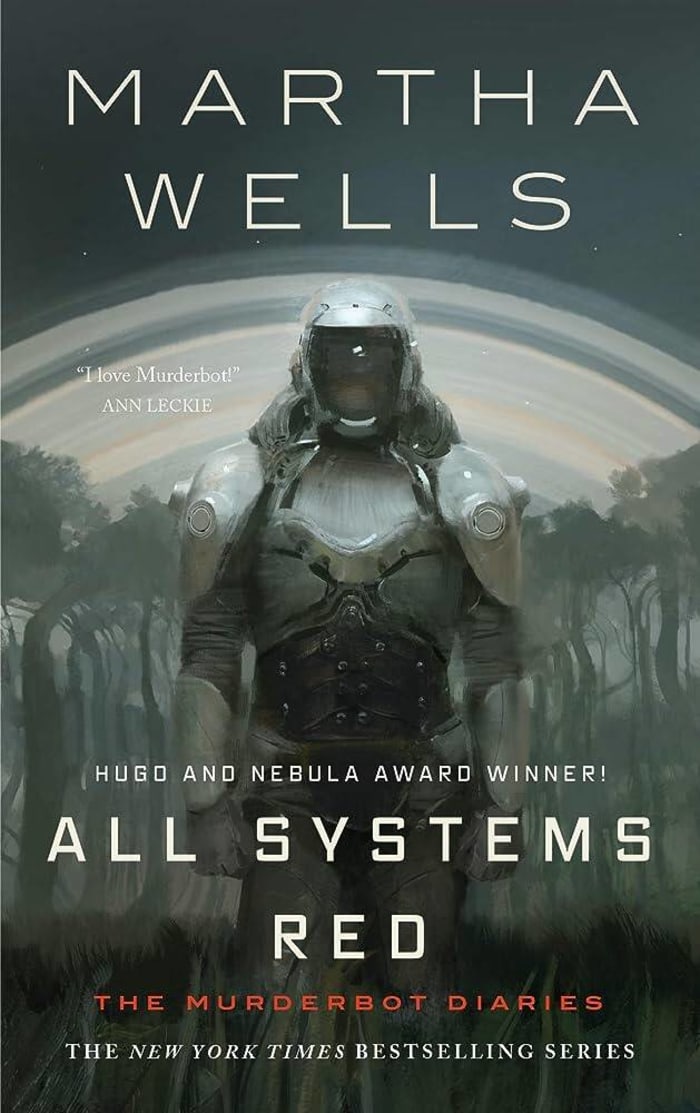
Martha Wells has proved adept at science fiction and fantasy, and in The Murderbot Diaries, she introduced readers to a sentient cyborg known as a SecUnit. Once it gains sentience and independence, it gives itself the name “Murderbot.” As the series unfolds, Murderbot learns more about itself, and the reader gets to explore the fascinating future Wells has created. Given the increasing rise of artificial intelligence of various sorts and the great leaps being made by tech, this series would no doubt prove even more popular on the screen than it was on the page.
The 'Broken Earth' series by N.K. Jemisin
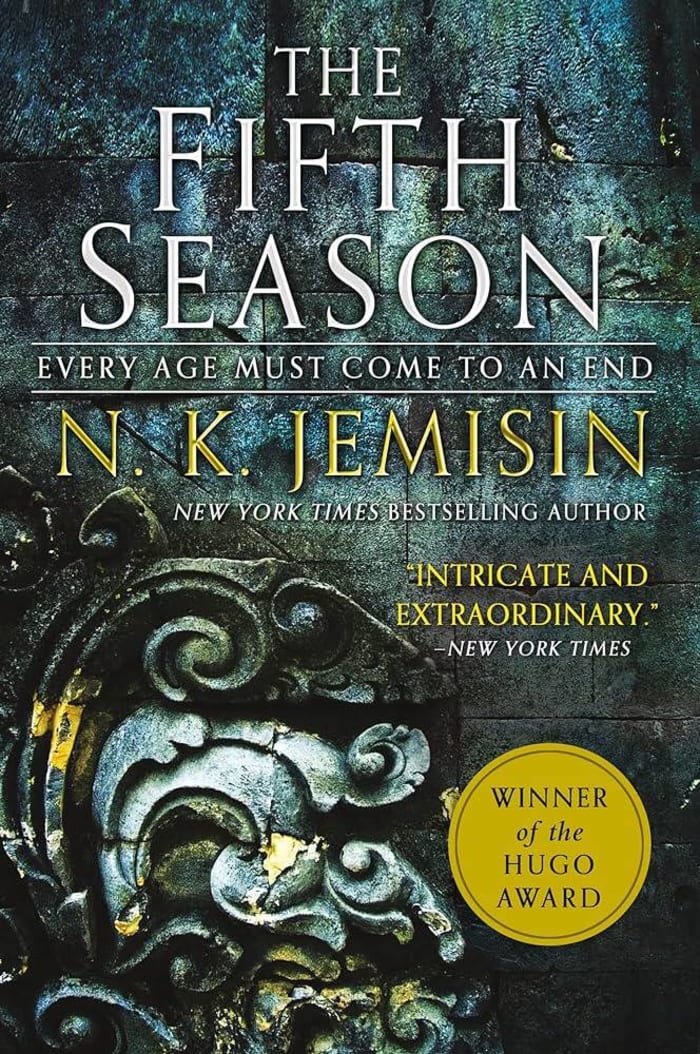
N.K. Jemisin is one of the most celebrated sci-fi and fantasy authors working today, and she earned particular acclaim for her Broken Earth series. It’s a fascinating look at a world faced by truly apocalyptic climate events. Like the best sci-fi, it uses human stories to ask big questions about the present, and as the climate catastrophe becomes ever more present, her works come to feel even more prescient. A screen adaptation of the series would give audiences another means of working through their complicated feelings about climate change, and the series' relevance would almost certainly make it a hit.
'The Vorkosigan Saga' by Lois McMaster Bujold

Lois McMaster Bujold has created a sprawling universe in the Vorkosigan Saga, which comprises numerous short stories and novels. As the title implies, much of the action centers on Miles Naismith Vorkosigan, and part of what makes the series so indelible is how it centers the experience and subjectivity of a disabled person. Though it would take a great deal of sensitivity to make a compelling and appropriately told adaptation, this Vorkosigan makes for a compelling hero, and it’s easy to see how he would ground a film franchise or a television series. This series would also help to diversify.
'Hyperion' Cantos by Dan Simmons
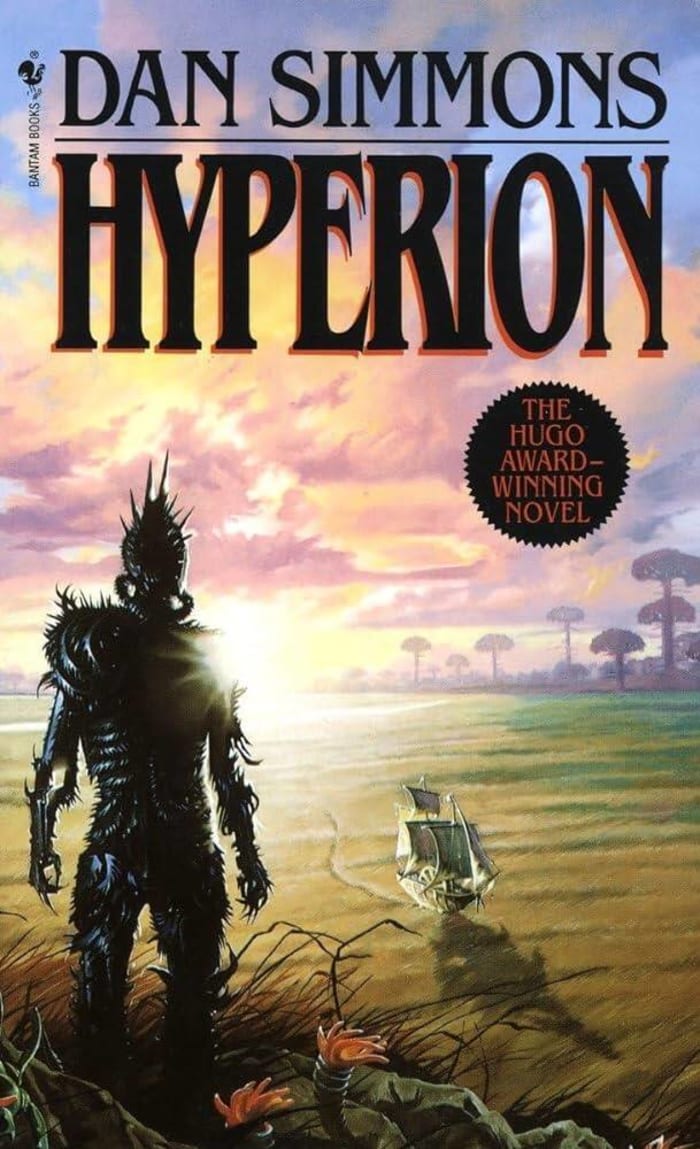
Dan Simmons is one of those science fiction authors who has always written with a literary bent, and his Hyperion series is a perfect illustration of this phenomenon. The first book is a particularly compelling read, structured as it is like Chaucer’s The Canterbury Tales, with an intergalactic group of pilgrims to ask a boon of the entity known as The Shrike. The rest of the series eventually time jumps, allowing the new characters to wrap up the events started in the first two books.
'Ilium'/'Olympos' by Dan Simmons
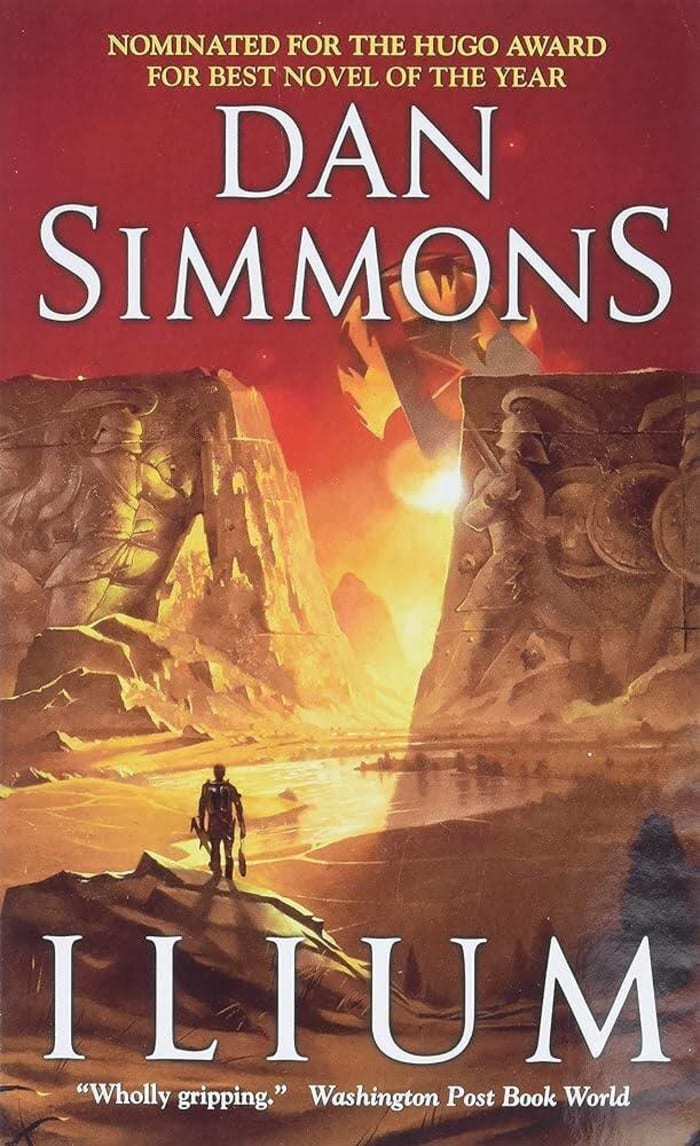
Dan Simmons adds a new gloss onto the age-old story of the Trojan War with his Ilium/Olympos duology, which focuses on several intersecting storylines and draws heavily from the works of Homer. It is a bit more literary than what one usually sees in the world of adaptation, but this is precisely what would make it such a valuable addition to the speculative fiction screen world. What’s more, it could also appeal to those who are drawn to the world of antiquity. Furthermore, like all great sci-fi, it asks some pressing and pertinent questions about the state of humanity today and in the future.
'Red Rising' by Pierce Brown
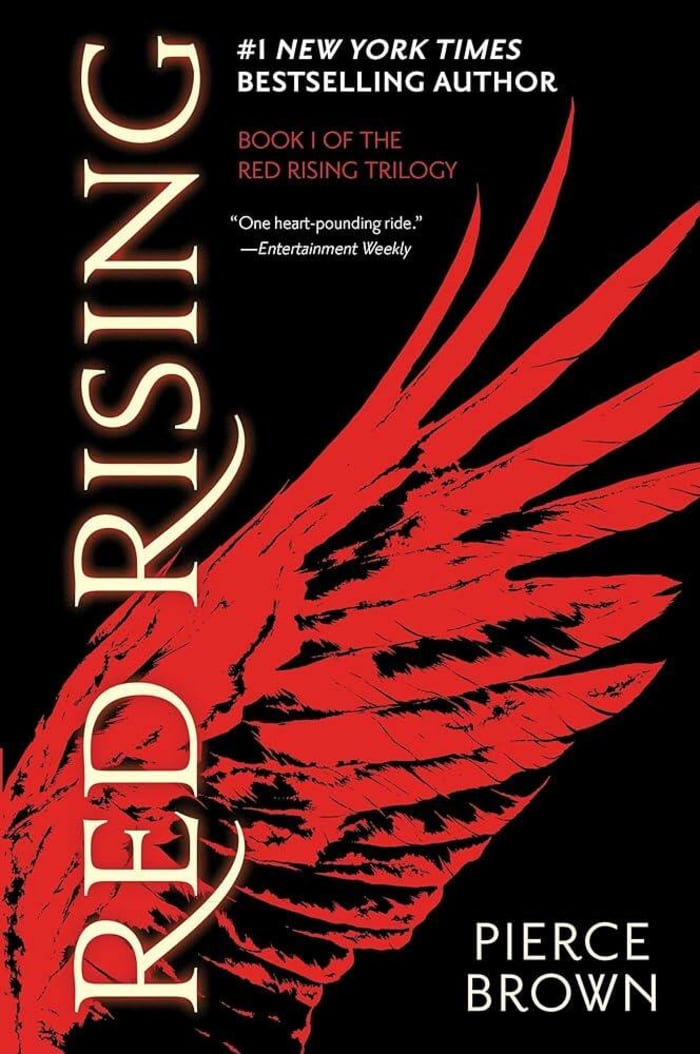
Pierce Brown burst onto the sci-fi scene with his first novel, Red Rising, which focuses on a miner named Darrow who unexpectedly escapes his life of drudgery to become a member of an elite fighting squad. As the series goes on, he becomes an agent of social change and disruption, threatening to bring the entire hierarchy of Mars crumbling down. This is exactly the type of thrilling series that was made for a screen adaptation, and one can easily see how such a version would appeal to fans of such existing franchises as The Hunger Games.
'Teixcalaan' by Arkady Martine
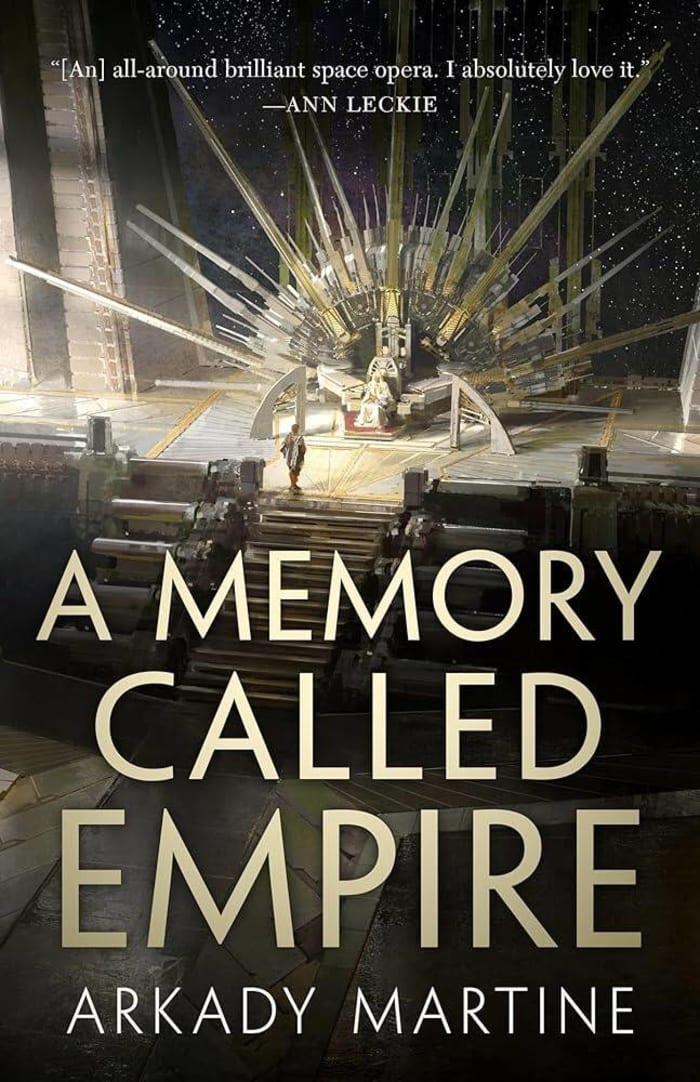
Layered storytelling, compelling characters, and an empire facing decline are all at work in Arkady Martine’s Teixcalaan series, which currently comprises A Memory Called Empire and A Desolation Called Peace. Martine draws on rich historical sources to create the sprawling civilization of the title, which is a mix of Aztec and Byzantium. It’s a sprawling and textured story, which makes it an ideal choice for a screen adaptation. What’s more, the political machinations at the heart of the story would make it a good fit for those who enjoy such series as Foundation and Game of Thrones.
'Children of Time' by Adrian Tchaikovsky
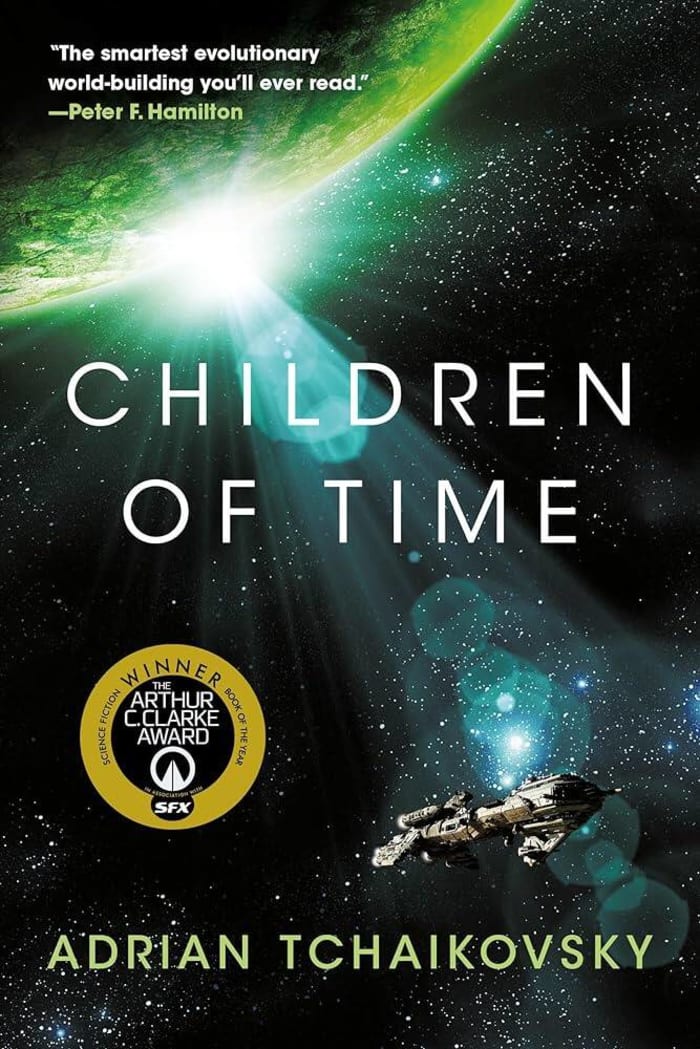
Adrian Tchaikovsky has a well-deserved reputation for writing science fiction that engages with pressing questions and heavy themes. In Children of Time, viewers are introduced to a human race that has largely abandoned itself to barbarism and a radically evolved group of spiders. Strange as this conceit might sound, Tchaikovsky handles it with aplomb, in the process shedding light on the way that civilizations form and asking pointed questions about just what it is that defines humanity itself. A screen adaptation would have a lot of material to work with — after all, who doesn’t want to see sentient spiders? — and it would work well as either a series or a number of films.
'The First Sister' trilogy by Linden A. Lewis

Linden A. Lewis has written a space opera for the 21st century in The First Sister, which, like many other sci-fi epics, focuses on a number of characters as they battle against corrupt corporations, failing governments, and their demons. What’s particularly notable about this series is the extent to which it includes a number of LGBTQ+ and nonbinary characters among its cast, each fully developed rather than a cluster of stereotypes. Adapting this novel to the screen would thus be a valuable step forward in terms of diversifying the types of stories that typically get told on film and television.
'The Interdependency' by John Scalzi
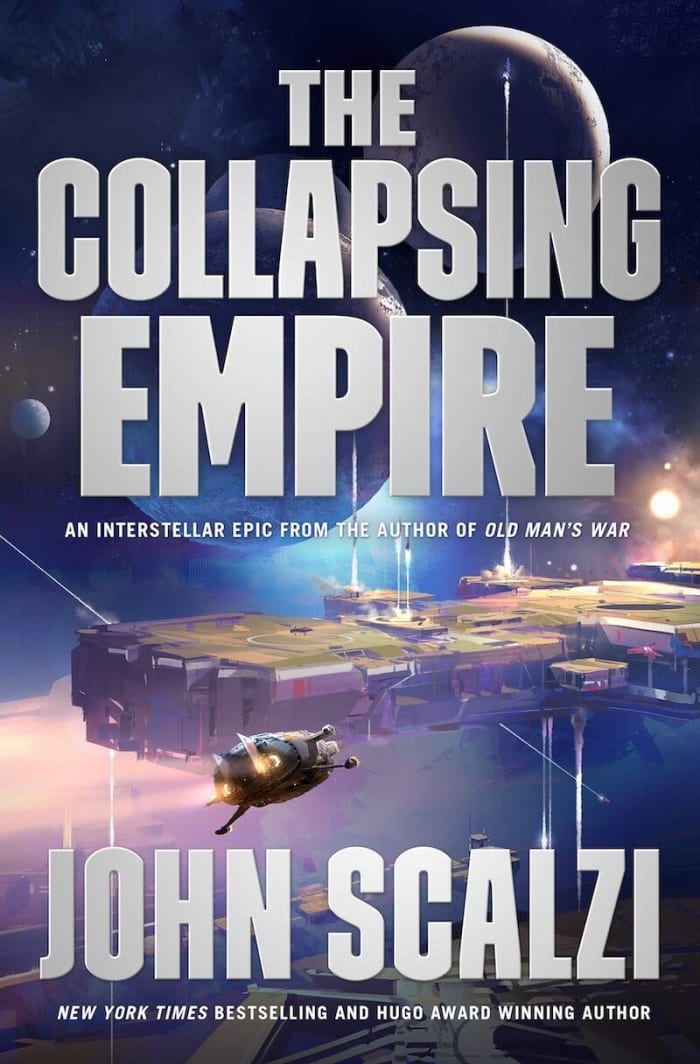
Written by sci-fi giant John Scalzi, The Interdependency takes place in an interstellar empire in which how space travel is necessary and is on the verge of collapse. In the tradition of series such as Foundation and Dune, it asks some big questions, but it does so without losing sight of the human characters who are the emotional center of the story. The series is a fascinating look at how people behave when faced with the end of a civilization and a way of life, holding up a disturbing mirror to the contemporary moment, making it an ideal choice for a screen adaptation.
'The Final Architecture' by Adrian Tchaikovsky
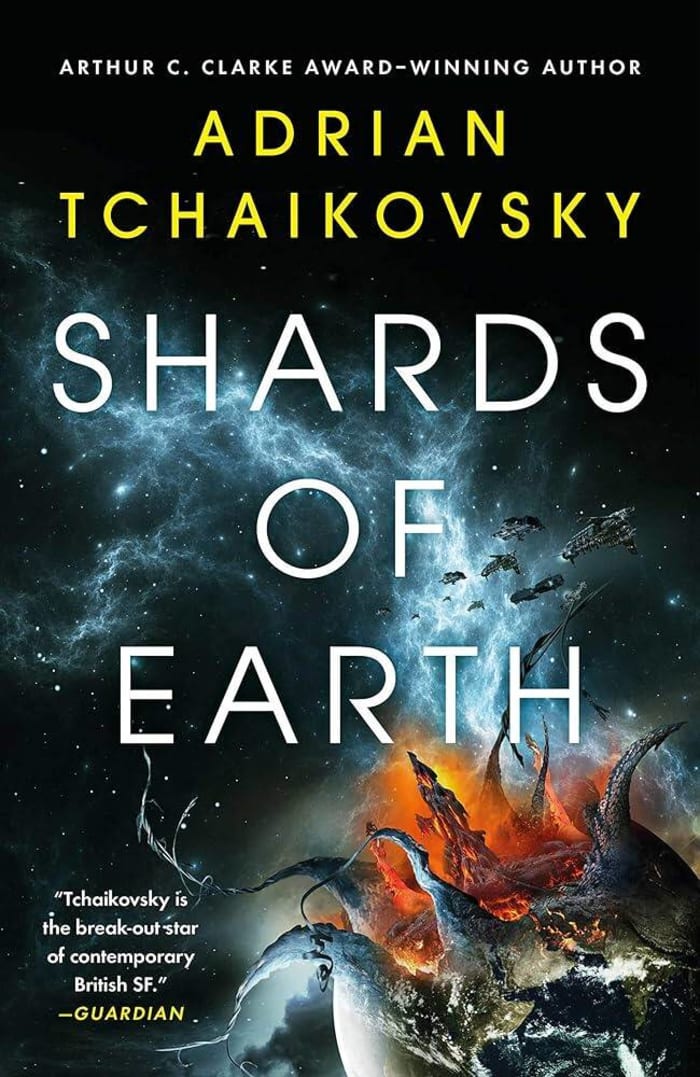
Written by Adrian Tchaikovsky, The Final Architecture is a trilogy of space opera novels focusing on the efforts of a disparate group of characters — human and otherwise — as they attempt to defeat a group of planet-destroying entities known as the Architects. It’s a sprawling and densely-told story, but Tchaikovsky knows how to keep the plot going even while fleshing out his universe. What’s more, it’s populated by characters who are easy to cheer for and care about, so it’s easy to see how the series could easily become a flagship for a network trying to establish itself in the speculative fiction mediascape.
'The Binti Trilogy' by Nnedi Okorafor
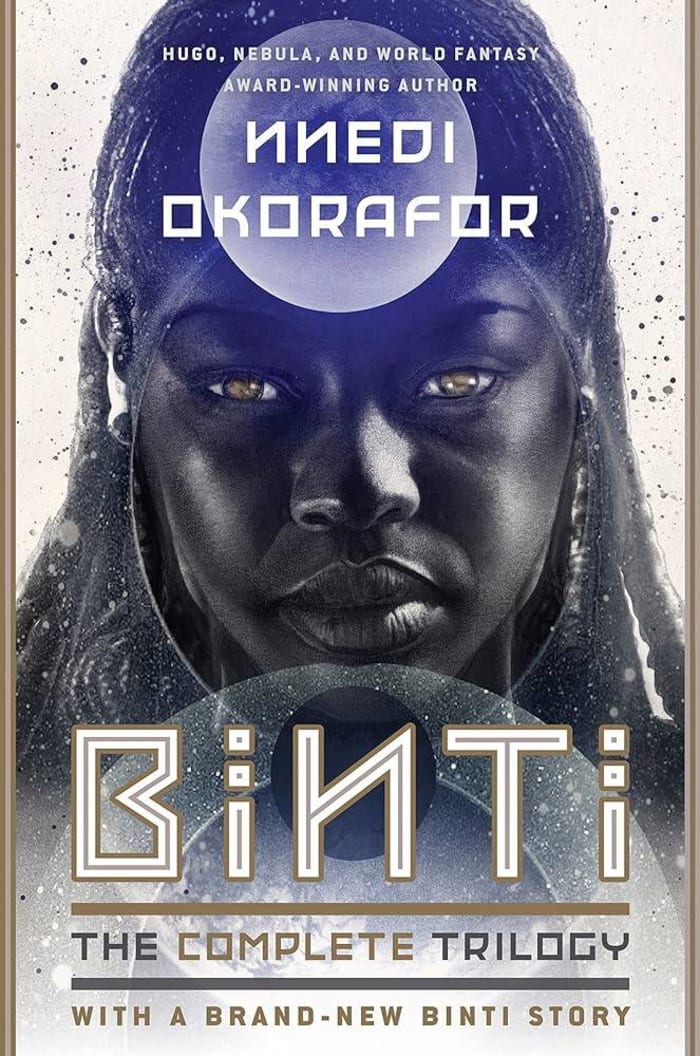
Though Black writers were excluded from the speculative fiction space for far too long, the past decade has seen an explosion of new perspectives. One of the most notable is The Binti Trilogy of novellas by Nnedi Okorafor, which focuses on the title character as she attends Oomza Uni. This journey leads her to discover new things about herself. The series draws on threads of Afrofuturism, and Binti makes for a compelling lead. As a result, an adaptation could easily draw on the enduring popularity of YA while also adding some much-needed diversity to sci-fi television.
Thomas J. West III earned a PhD in film and screen studies from Syracuse University in 2018. His writing on film and TV has appeared at Screen Rant, Screenology, FanFare, Primetimer, Cinemania, and in a number of scholarly journals and edited collections. He co-hosts the Queens of the B's podcast and writes a regular newsletter, Omnivorous, on Substack. He is also an active member of GALECA, the Society of LGBTQ Entertainment Critics.
More must-reads:
Trending in Entertainment
Customize Your Newsletter
 +
+
Get the latest news and rumors, customized to your favorite sports and teams. Emailed daily. Always free!
Use of this website (including any and all parts and
components) constitutes your acceptance of these
Terms of Service and Privacy Policy.

